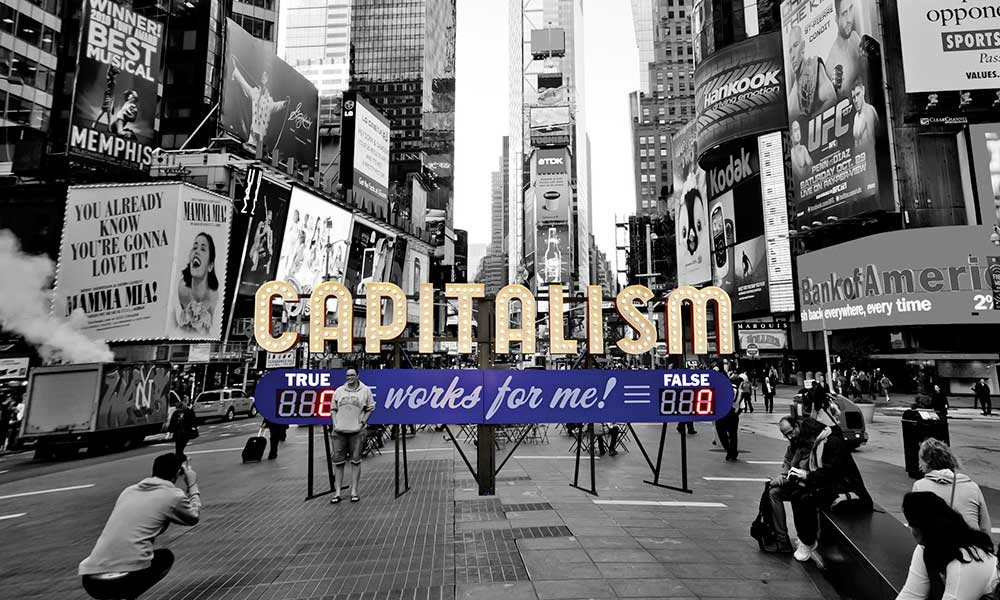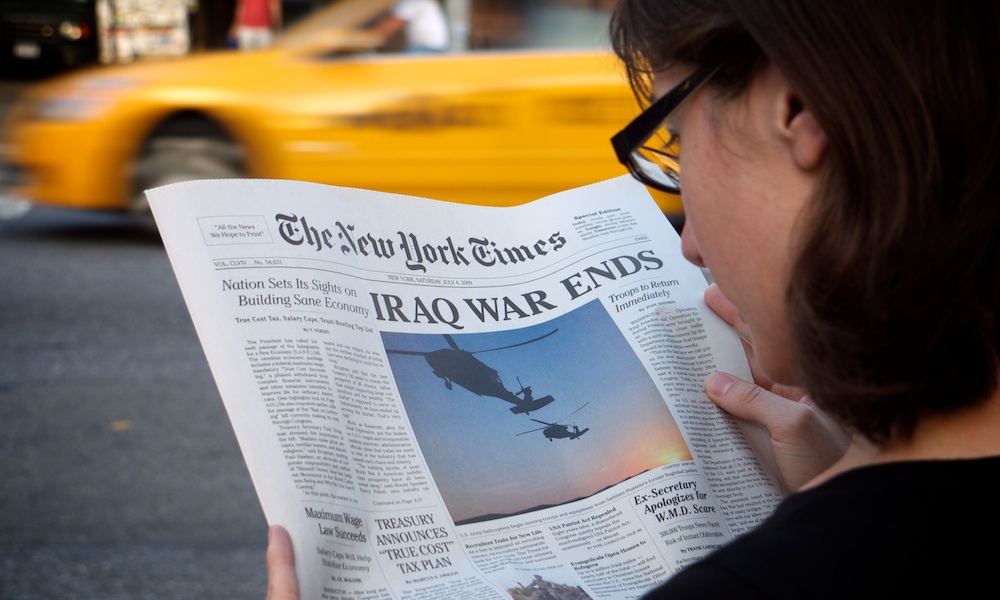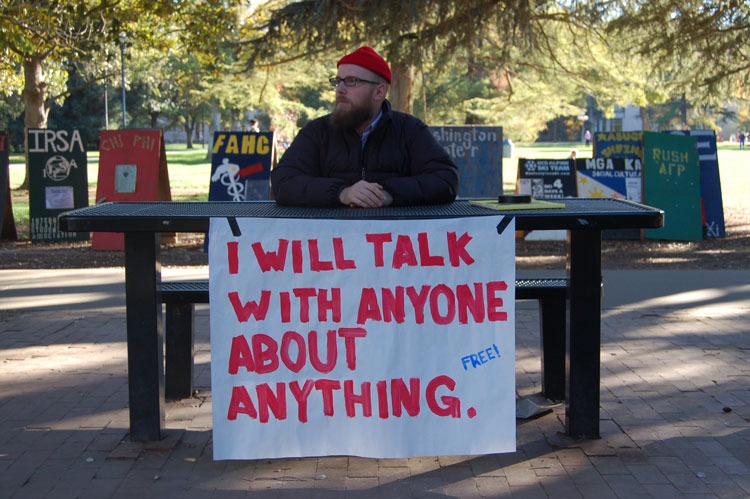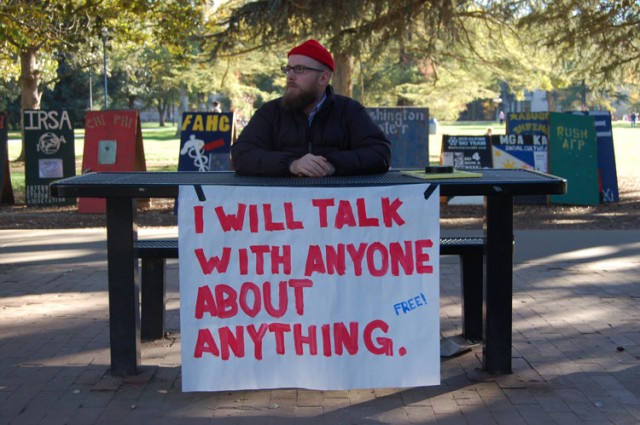Capitalism Works For Me! True/False (2011), Image courtesy of visitsteve.com
Homework II: Long Forms / Short Utopias is less than a week away and we’re incredibly excited to be welcoming so many new and old friends to Windsor. The conference is aiming to foster a conversation around the ideas, infrastructures, and risks embedded in socially-engaged practices that unfold over years or moments at a time. For more information and to register to attend, please click here.
Now, you could read Lambert’s bio on his website to learn more about where he comes from and what he does, but we thought that reposting his artist statement might help to illustrate why we’re so excited to have him to be a part of the conference. For us, it seems to capture some of the overarching concerns we’re looking to discuss at the conference. In his words, here’s how Steve Lambert approaches art:
For me, art is a bridge that connects uncommon, idealistic, or even radical ideas with everyday life. I carefully craft various conditions where I can discuss these ideas with people and have a mutually meaningful exchange. Often this means working collaboratively with the audience, bringing them into the process or even having them physically complete the work.
I want my art to be relevant to those outside the gallery – say, at the nearest bus stop – to reach them in ways that are engaging and fun. I intend what I do to be funny, but at the core of each piece there is also a solemn critique. It’s important to be able to laugh while actively questioning the various power structures at work in our daily lives.
I have the unabashedly optimistic belief that art changes the way people look at the world. That belief fuels a pragmatic approach to bring about those changes.
Lambert’s sense of art as a bridge to everyday life, civic practices, and public spaces has always resonated with us. From his public performances, to collaborative interventions, to his large-scale signage works, Lambert’s practice implicates art into a larger set of politics and concerns that reminds us of the ways in which art can help generate new conversations and reframe old ones.
THE NEW YORK TIMES SPECIAL EDITION (2008), image courtesy of visitsteve.com
We’ve been writing and thinking about Steve’s work for years, and we can’t wait to hear him speak in person. He’ll be a part of our Keynote Panel on Friday, November 8th at 7pm at the Art Gallery of Windsor with Jeanne van Heeswijk and Darren O’Donnell and joining us for discussions and reflections over the rest of the conference.
P.S. We have just a few seats left for the conference! Want to join in on the fun? Email us at homework@brokencitylab.org to register!
Homework II will run November 8-10, 2013 in Windsor, Ontario at Art Gallery of Windsor and CIVIC Space.
Our featured keynote speakers this year will be Jeanne van Heeswijk (Rotterdam), Darren O’Donnell (Toronto), and Steve Lambert (New York). In addition to our keynotes, we’ve also invited a series of curatorial partners to develop panels that tackle the conference themes. And, to top it all off, everyone who attends will be co-authors of a book that captures the ideas and conversations from this year’s conference through a series of interviews with presenters, attendees, and organizers alongside collected materials from our 2011 conference.
For more information, please email homework@brokencitylab.org
Homework II: Long Forms / Short Utopias is made possible with generous support from the Ontario Arts Council, Ontario Trillium Foundation, Art Gallery of Windsor, and IN/TERMINUS.





